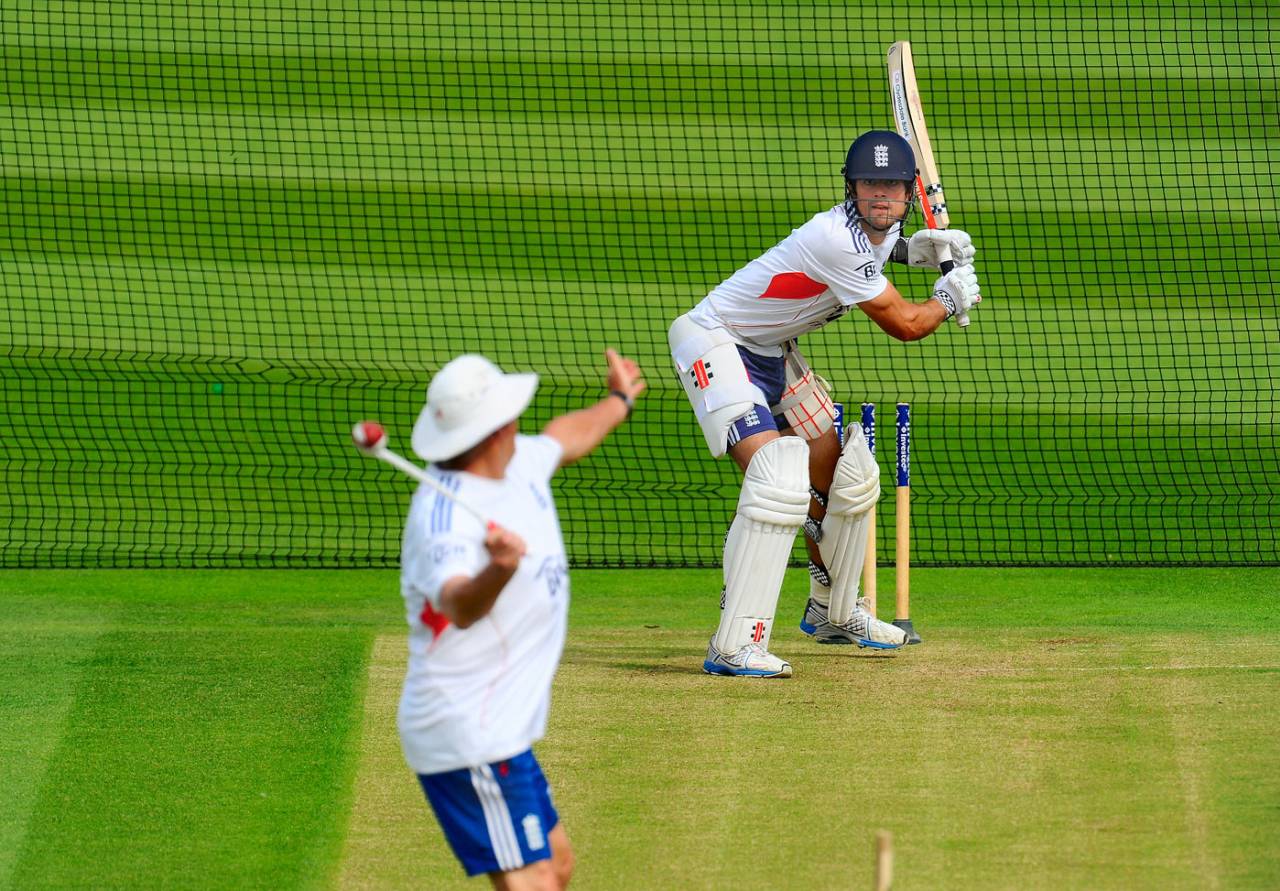Time for England's big fat review
A cathartic review may help the pundits feel better but how should the rest of us deal with a 5-0 defeat?
Andrew Hughes
Jan 8, 2014, 5:51 AM

It's time Graham Gooch is banished to America where he can coach baseball pitchers • Getty Images
If English cricket went to see a self-help guru, he or she would, after extracting a large sum of money from English cricket, invite English cricket to reflect on the axiom that every crushing, humiliating, catastrophic, devastating setback is, in fact, an opportunity.
History is full of examples. The flood described in the Book of Genesis and the Epic of Gilgamesh might have destroyed nearly every living thing on the planet, but after the waters subsided, the flood defence industry enjoyed a boom time, referred to in The Illustrated Guide to the History of Sandbag Making as the Age of the Golden Sandbag.
So while English cricket may be suffering a temporary slight Armageddon, the English pin-sticking, soothsaying and scapegoat industries are flourishing, as journalists, administrators, players, coaches and Team England deputy body-waxing operatives scramble to grab excuses and effigies in the big January blame sale.
A storm of discontent has broken. Mutinous sentiment is pouring on to the internet from a million English keyboards and sooner or later this swell of churning opinion will flood downstream and overwhelm the pleasant lowlands of English cricket with a frothy surge of outrage, an inundation of indignation.
In other words, it's time for a Review. You can feel it in the air. The magical properties of a Review have long been acknowledged. The Schofield Review saved England from Lord Voldemort, and the Argus Review, recited every full moon over a bubbling cauldron by Darren Lehmann, Greg Chappell and Shane Warne, has unleashed the dark forces of Australian cricket that have pillaged and laid waste England's defenceless reputation.
It seems inconceivable then that the chaps at the ECB could venture into the scary, post-whitewash wilderness without clutching, along with a rabbit's foot and a sprig of lucky heather, a big fat Review of Everything, with which to ward off evil. Obviously, we don't yet know what will be in the Review, but it doesn't really matter, so long as there is one, and I have four helpful straw-clutching suggestions to get things started:
1. During a Test match, Alastair Cook relies heavily on tactical advice delivered to him by courier, making his captaincy appear slow and predictable. He should therefore be fitted with a sub-cranial wireless router and receiver, so spontaneous tactics can be transmitted directly to his brain by Team England's Spontaneous Tactics Co-ordination Committee (tactics such as moving a third fielder to the cover boundary, or asking Broad to try another bouncer).
2. The England team are not having enough fun. Journalists agree on this, so it must be true. On his return from Australia, Andy Flower will hold a series of "Fun Workshops" from which he will derive a "Fun Maximisation Strategy" a "Fun Matrix" and a 27-point "Fun Agenda" to be issued to all centrally contracted players, memorised, and then destroyed.
3. Until recently, it was believed that Graham Gooch was a wise and kindly uncle to the England team; a prophet, who through the cult of the Daddy Hundred had turned timid bat wavers into giants of blocking and nudging; a genius who had arranged the rejuvenation of the art of English batting with the same attention to detail with which he had arranged the rejuvenation of his fine head of hair.
It is now clear that this balding, ageing reactionary with his silly rubber dog-toy gimmicks and his incoherent Essex mumblings about daddy hundreds, has single-handedly ruined English batting for a generation and that this malign influence must be declared a non-person immediately, to be replaced by someone who would be more fun at press conferences, such as David Gower, Philip Tufnell, Douglas Jardine or Stephen Fry.
4. It is clear that England's batsmen lost the Ashes. Such a colossal failure in the willow-wielding department requires a drastic solution, namely: the immediate sacking of all the bowlers and their replacement with some better ones (names to be supplied at a later date).
That should sort things out. But although a cathartic review may help the pundits feel better, how should the rest of us deal with a 5-0 defeat? In recent days I have heard many earnest conversations between earnest English people, earnestly analysing the cricket as though, like interest rates, gas prices or tax increases, it had a direct bearing on their lives.
Why should we mere mortals, who are not contractually obliged to appear to be caring one way or the other, and who are unable to affect the outcome of any cricket match even if we wanted to, pull on sackcloth underpants, daub our faces with the Ashes, and wander the streets of England looking glum?
We should remember that cricket is not one of the mundane realities of life, not a thing about which we are forced through circumstance to worry, fret or argue. Like great art, cricket is entirely useless, utterly ephemeral, existing only to provide fleeting moments of joy. It is far too important to take seriously.
Andrew Hughes is a writer currently based in England. He tweets here